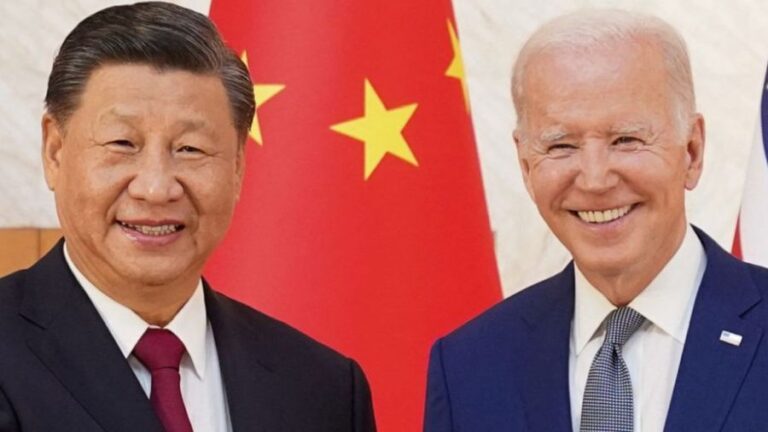Trump Aside, Is AIPAC’s Power Waning?
America’s leading Israel advocacy group, AIPAC, opened its national policy conference this week and there is trouble in Paradise.
While the event promises to bring nearly 18,000 attendees to bask in pro-Israel rhetoric and intensive Congressional lobbying, there are cracks in the armour of the lobby megalith.
No Netanyahu speech
On Monday, an unexpected development has roiled the proceedings. A rocket from Gaza landed on a home near Kfar Saba, north of Tel Aviv, injuring seven people. While the circumstances of the attack are unclear, it is a big escalation in the Palestinian military effort to threaten Israel’s major population centres.
In response, Israeli Prime Minister, Benjamin Netanyahu announced that he will cut short his US visit and cancelled his AIPAC speech scheduled for Tuesday.
But he will meet with President Trump at the White House. For an Israeli politician in a tight election race, such a photo opportunity is of incalculable value.
Whoever fired that rocket may have brought Netanyahu an election victory
Also, this is precisely the sort of gambit Netanyahu pounces upon. Whoever fired that rocket may have brought Netanyahu an election victory.
Israel will certainly retaliate fiercely. And such military chest-thumping makes the hearts of Israeli voters go pit-a-pat.
Bi-partisan veneer
For decades, AIPAC has marched in lockstep with the ascendant right-wing Likud government.
Nevertheless, it managed to maintain a bi-partisan veneer because there were enough powerful Democratic donors to ensure attendance by political grandees at the conference and loyalty to the group’s legislative agenda. However, during the Obama presidency, Netanyahu banished any vestige of bi-partisanship.
He even aired a Florida campaign ad on behalf of failed Republican presidential nominee Mitt Romney, a phenomenon unheard of in Israeli or US politics.
During Obama’s second term, after the US president embraced a nuclear pact with Iran which Netanyahu fiercely opposed, the Israeli leader wangled an invitation to address the US Congress.
The affair was intended for Netanyahu and the GOP to thumb their noses at Obama. His subsequent address was itself a passionate partisan appeal to the American people to reject the president’s policy toward Iran.
Such an outright rejection of a US president by an Israeli leader before the Congress has never happened before. Despite these sleights, Jewish Democrats and elected officials continued to attend and address the national conference.
Many progressive Jews excoriated Democrats for continuing to associate with an organisation which had clearly chosen to endorse the views and policies of the GOP.
The Blue Wave
Then a funny thing happened on the way to the Forum: in the November elections, a Blue wave swept the Republican majority from Congress and replaced it with one of the most progressive classes ever elected.
Scores of new women entered the House, including the first two Muslim-American women, Reps Rashida Tlaib and Ilhan Omar. For the first time, these two representatives publicly endorsed the BDS movement and called for an end to US military aid to Israel.
Last week almost all current Democratic presidential candidates announced that they would not attend or address the conference
Earlier this month, the Israel lobby and its Democratic allies went on the counter-attack after Omar criticised AIPAC and elected officials who took money from the lobby in return for fealty to its pro-Israel agenda.
Later, she also implied that pro-Israel Jews were more loyal to Israel’s interests than America’s. Powerful Jewish legislators like Jerrold Nadler and Nita Lowey denounced Omar and demanded she apologise.
They pressured Speaker Nancy Pelosi to consider a resolution denouncing Omar by name as anti-semitic.
Though progressives feared the worst, many of the young newly elected House members rebelled against the older generation of leaders and rejected the punishment of Omar.

As a result, a substitute resolution was adopted which denounced anti-Semitism and Islamophobia, and did not call out Omar.
This was a major defeat for the lobby, which is used to always getting its way. As a result, it has taken a step back from the limelight and advanced several anti-BDS bills which would implicitly target figures like Tlaib, Omar, and the US pro-Palestine movement.
AIPAC’s best of times?
Undoubtedly, the delegates who flock to Washington for the conference will be pressuring their elected officials to advance this legislation to the floor for a vote.
In some ways, it should be the best of times for AIPAC. It has the most nakedly pro-Israel president in the nation’s history. Trump moved the US embassy to Jerusalem and just this week explicitly called for recognition of Israeli territorial rights to the Golan.
This is territory Israel conquered in the 1967 Arab-Israeli War and annexed in violation of international law. Further, Trump is openly stumping for Netanyahu’s re-election as these presidential decisions show.
The policy conference would have found the Israeli leader making one of his stem-winding speeches, seeking to burnish his credentials back home as a friend of both the US president and powerful American Jewish leaders.
However, there are a number of factors working against AIPAC as the annual conference wraps up on Tuesday.
Israel is in the midst of an election campaign which is the most racist in the country’s history. Netanyahu single-handedly promoted the merger of violent Jewish supremacist parties, promising them two ministerial posts in his next government.
The Knesset elections committee, with Netanyahu’s approval, rejected the participation of a Palestinian party in the elections, while endorsing an avowedly far-right Kahanist who has advocated violence and hate against Palestinians. This decision, however, was recently overturned by the Supreme Court.
AIPAC itself played into this deepening embrace of Israeli extremism by inviting, for the first time, an Israeli settler leader to address the conference. This development shows the increasingly rightward tilt among the organisation’s leadership and rank and file.
Ditching AIPAC
Into this maelstrom jumped the progressive Democratic group, Moveon.org, with a campaign to @skipaipac. Other national organisations like Jewish Voice for Peace joined in amplifying the message to the Jewish community.
As a result, last week almost all current Democratic presidential candidates announced that they would not attend or address the conference.
The only aspirants who remained on board were Amy Klobuchar and Cory Booker, both closely identified with the pro-Israel community. Joe Biden, the most prominent non-candidate, would normally attend, although he has so far stayed silent. Given his decades-long romance with the lobby, it would be difficult for him to stay away.
This rejection of the Israel lobby by the leading Democratic presidential hopefuls is unprecedented. It is the first major slap in the face suffered by AIPAC at the hands of the party faithful.
While a defeat here or there has offered hope that the vice-like grip of groups like AIPAC might be weakening, hitherto these were but small cracks in the dam.
But to have most of the Democratic presidential field abandon AIPAC, and by extension the power of pro-Israel donors who normally would have rubbed shoulders with them this week, is extraordinary.
AIPAC has simply never been dissed in such an overt fashion.
By Richard Silverstein
Source: Middle East Eye







